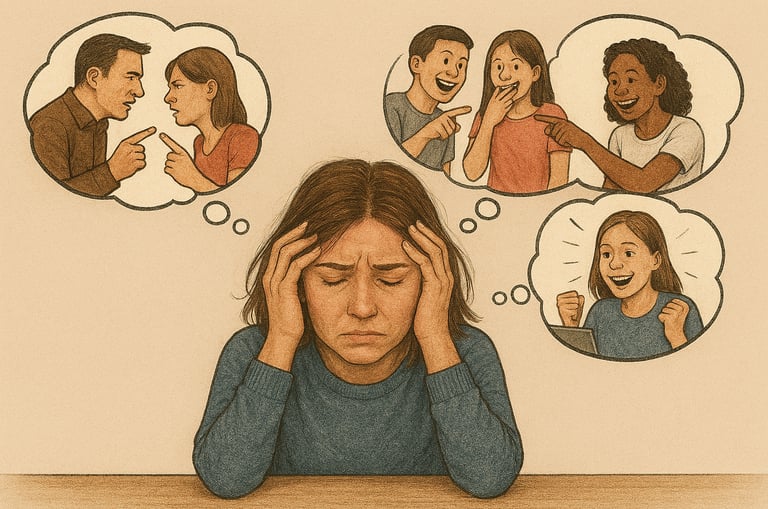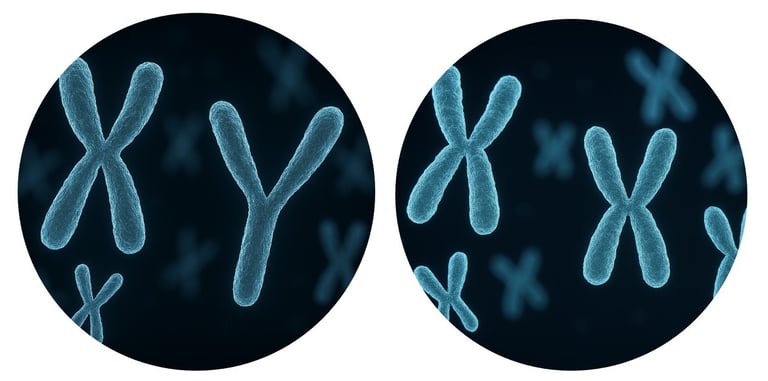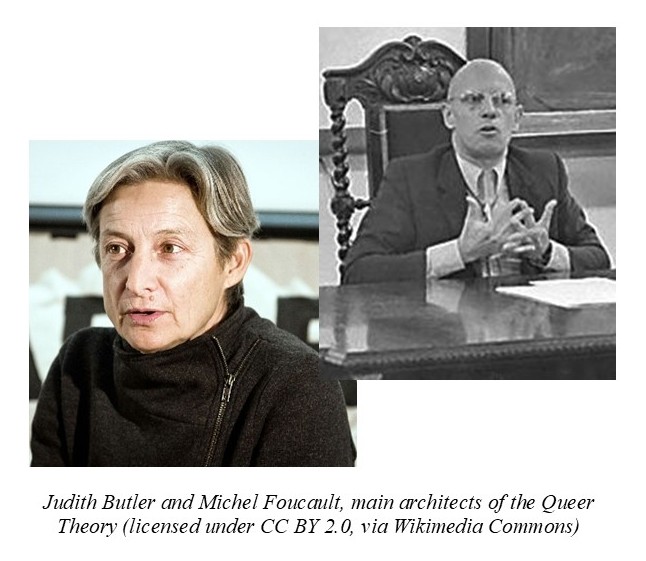A Life Project by Vicente (Tex) Hernandez
The Homosexual Game
Can we call it a game? Are the players just pawns in this game? Who is behind it? What is truly homosexuality? What facts are we ignoring? Is our perception being carefully shaped? These concerns require an honest look, a genuine willingness to listen to what is uncomfortable, to question what we take for granted, and to create space to find the necessary answers.
GENDER, SEXUALITY, AND IDENTITY
TH
8/19/20254 min read


It’s easy to let go—to avoid questioning and confrontation. The controversies surrounding homosexuality have not arisen naturally. The promoters have inexhaustible resources backed by an influential and affluent minority, determined to defend convenient, extreme, and controversial positions. At the same time, we see that an opposing stance is beginning to take shape, though it has not yet managed to articulate solid arguments to support its position.
Caught in the middle are confused victims—many of them young adults and children—struggling with questions about their identity, their integrity, and their future. It is these individuals—the victims—whom I hope will find inspiration throughout the pages of this blog.
What is homosexuality? Homosexuality refers to sexual attraction, romantic attraction, or sexual behavior between members of the same sex or gender. Effeminate or tomboyish stereotypes, differences in gender preferences or tastes, personal likes and dislikes, upbringing, and even strong bonds of affection between close friends do not define someone as homosexual. It is only sexual behavior that defines it.
There are many circumstances that might involuntarily lead a person to adopt mannerisms typically associated with the opposite sex. Let me emphasize that these are not manifestations of homosexuality. For example, factors such as one’s education or treatment at home — including relationship styles with parents, emotional indifference, overprotectiveness, absence of parental figures, insecurity, or excessive pressure regarding school performance — can lead to confusion about gender expression or preferences.
Another common ground of confusion is in specific personality profile. These special personality profiles could show in oneself a lack of confidence, emotivity and a physical need for affection, attachments to people, and the lack of self-control. Artists in particular might misunderstand feelings of attraction towards people of the same sex as homosexual, without realizing that it is just their penchant for beauty. All of it, properly channeled, might lead to personal growth rather than homosexuality. We just need understanding and the right advice—opening up to the person who can truly help us.
On the other hand, emotional wounds caused by traumatic sexual experiences are serious issues that require treatment and healing. Living in sociocultural contexts that promote, for example, hyper-eroticism, hedonism, relativism, or gender ideology may encourage promiscuity or even homosexuality too, simply because such behaviors are made to seem fashionable—almost like a game.


But what do we mean when we speak of the "homosexual game"? Perhaps you've never thought of it that way — but why not? A game is something artificial, something constructed for the benefit of its players. In that sense, the current cultural push toward a homosexual lifestyle can be seen as artificial, especially if it lacks a biological foundation.
There is no known "homosexual chromosome" or consistent, viable genetic mutation linked to it. Honest, serious researchers—though many raise concerns about their underlying motivations—continue to tell us: “There may be a biological foundation, but as of now, we cannot prove it.”
What we do find, however, are various contributing factors: hormonal imbalances and mental health disorders; the harmful effects of public policy; the widespread presence of estrogens in commercially available products; pornography, sex addiction, and drug use; and cultural elements such as ignorance, upbringing, and social pressure.


You’ve probably heard of the Queer Theory—a concept gaining popularity, especially among younger generations. It’s widely promoted today, but it is essentially a byproduct of constructivism and the broader Woke movement.
Queer Theory challenges the belief that gender and sexuality are fixed, binary categories. Because it lacks a biological foundation, it encourages the idea that our feelings, thoughts, and beliefs can define our reality. As a result, some individuals attempt to conform to their perceived reality through surgical procedures that lead to gender transitions.
However, many overlook the fact that dissociation from reality is a mental illness with serious consequences they may eventually face. In psychiatry, mental health conditions that involve a break from reality—such as delusions or detachment—are known as psychotic disorders. The ideological basis of some current cultural trends reflects similar patterns of disconnection. For example, schizophrenia—characterized by disorganized thinking and false beliefs—and schizoaffective disorder—which combines symptoms of psychosis with mood disturbances—are clinical examples of how severe detachment from reality can manifest.
Consider this a warning to those who embrace constructivist and postmodern theories: dissociation from reality is a serious condition. Those who suffer from it eventually become impaired— unable to relate to others, emotionally unstable, and trapped in a psychosis where they believe they are isolated and constantly misunderstood for who they perceive themselves to be.


Alexander the Great and Julius Caesar were both sexually fluid—men, soldiers, and conquerors. They did not advocate for gay rights or seek special inclusions.
Let us encourage those who feel marginalized or rejected because of their homosexuality to rediscover their true identity by striving to live as men and women, in accordance with their physical constitution rather than turning away from it. This effort, which to some may seem inconceivable, requires determination and support. Without that foundation, they may never find peace. Chasing a fictitious reality can lead to despair.
Life is greater than sexual desire.


Contact & Inquiries
info@echoepolaris.com
© 2025. All rights reserved.


If you have any feedback, comments, or questions, feel free to share your email address.
